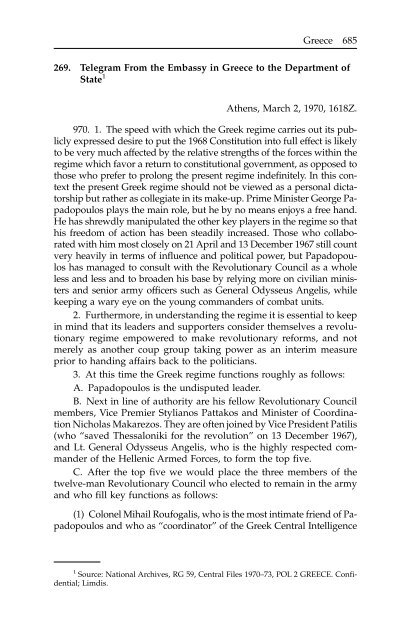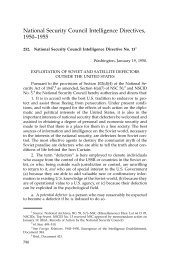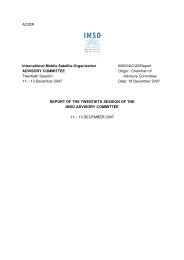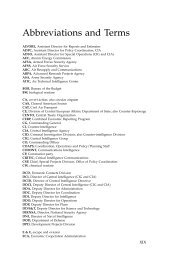Greece - US Department of State
Greece - US Department of State
Greece - US Department of State
Create successful ePaper yourself
Turn your PDF publications into a flip-book with our unique Google optimized e-Paper software.
<strong>Greece</strong> 685<br />
269. Telegram From the Embassy in <strong>Greece</strong> to the <strong>Department</strong> <strong>of</strong><br />
<strong>State</strong> 1<br />
Athens, March 2, 1970, 1618Z.<br />
970. 1. The speed with which the Greek regime carries out its publicly<br />
expressed desire to put the 1968 Constitution into full effect is likely<br />
to be very much affected by the relative strengths <strong>of</strong> the forces within the<br />
regime which favor a return to constitutional government, as opposed to<br />
those who prefer to prolong the present regime indefinitely. In this context<br />
the present Greek regime should not be viewed as a personal dictatorship<br />
but rather as collegiate in its make-up. Prime Minister George Papadopoulos<br />
plays the main role, but he by no means enjoys a free hand.<br />
He has shrewdly manipulated the other key players in the regime so that<br />
his freedom <strong>of</strong> action has been steadily increased. Those who collaborated<br />
with him most closely on 21 April and 13 December 1967 still count<br />
very heavily in terms <strong>of</strong> influence and political power, but Papadopoulos<br />
has managed to consult with the Revolutionary Council as a whole<br />
less and less and to broaden his base by relying more on civilian ministers<br />
and senior army <strong>of</strong>ficers such as General Odysseus Angelis, while<br />
keeping a wary eye on the young commanders <strong>of</strong> combat units.<br />
2. Furthermore, in understanding the regime it is essential to keep<br />
in mind that its leaders and supporters consider themselves a revolutionary<br />
regime empowered to make revolutionary reforms, and not<br />
merely as another coup group taking power as an interim measure<br />
prior to handing affairs back to the politicians.<br />
3. At this time the Greek regime functions roughly as follows:<br />
A. Papadopoulos is the undisputed leader.<br />
B. Next in line <strong>of</strong> authority are his fellow Revolutionary Council<br />
members, Vice Premier Stylianos Pattakos and Minister <strong>of</strong> Coordination<br />
Nicholas Makarezos. They are <strong>of</strong>ten joined by Vice President Patilis<br />
(who “saved Thessaloniki for the revolution” on 13 December 1967),<br />
and Lt. General Odysseus Angelis, who is the highly respected commander<br />
<strong>of</strong> the Hellenic Armed Forces, to form the top five.<br />
C. After the top five we would place the three members <strong>of</strong> the<br />
twelve-man Revolutionary Council who elected to remain in the army<br />
and who fill key functions as follows:<br />
(1) Colonel Mihail Roufogalis, who is the most intimate friend <strong>of</strong> Papadopoulos<br />
and who as “coordinator” <strong>of</strong> the Greek Central Intelligence<br />
1<br />
Source: National Archives, RG 59, Central Files 1970–73, POL 2 GREECE. Confidential;<br />
Limdis.
















